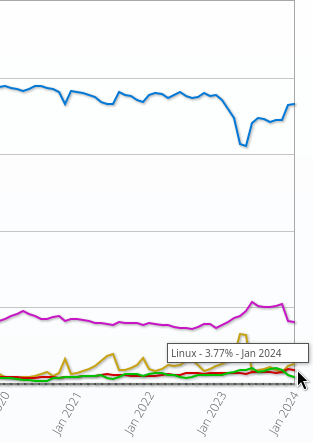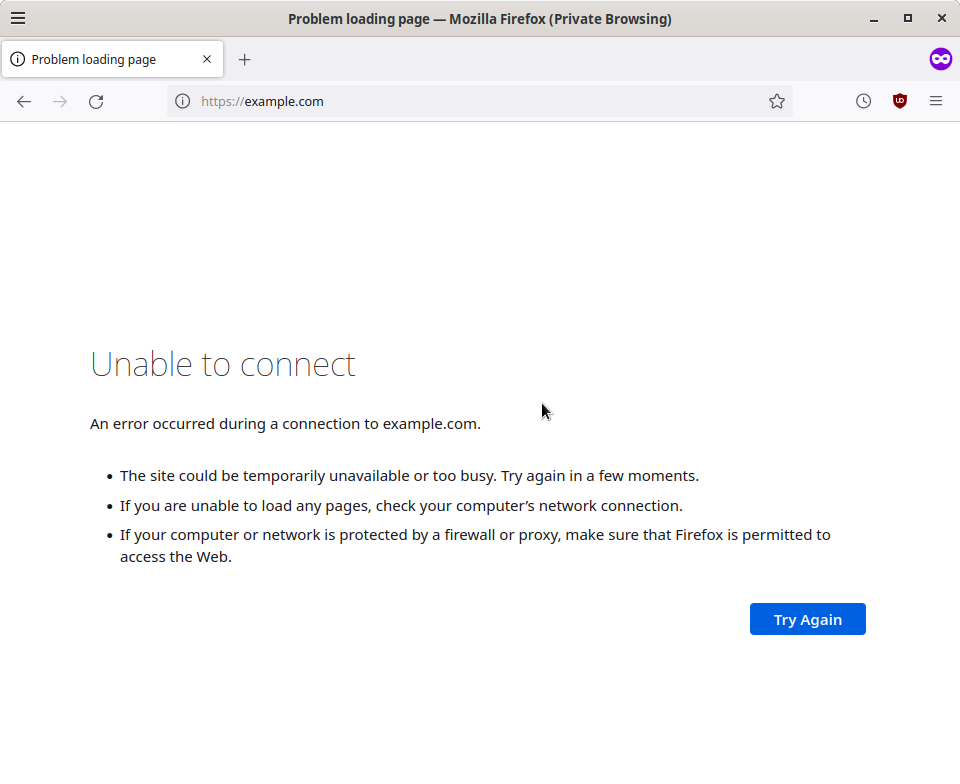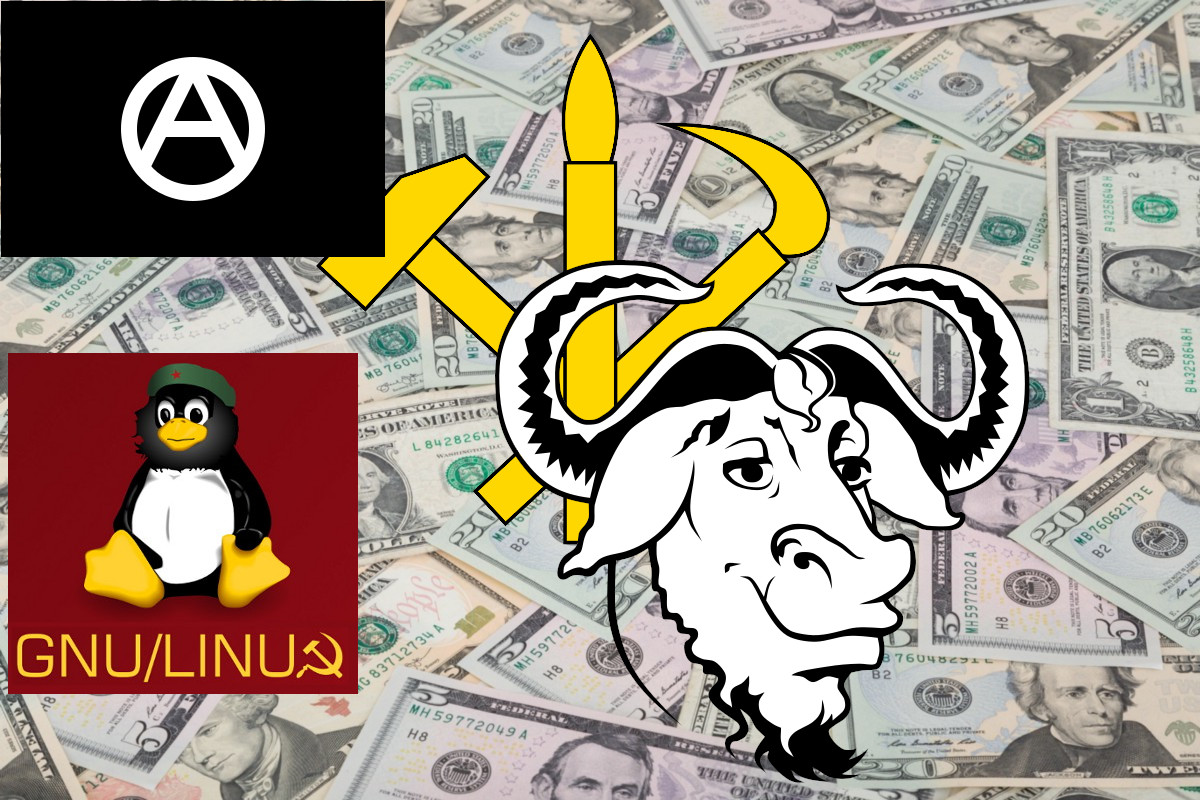According to Statcounter, GNU/Linux is the operating system used on 3.77% of desktop computers (laptops and desktop computers)1. In the chart we can see that in January 2021 the share of GNU/Linux was 1.91%, which means that in three years it has doubled its popularity. It's also worth mentioning that the share of Chrome OS (which uses the Linux kernel) is 1.78%.
However, this statistic is not fully representative, since Statcounter's
tracking code is installed on only 1.5 million websites2. Also, some
GNU/Linux users — those who care more about privacy — use
tools that change the
User-Agent (an
example is Tor Browser, which always claims to use Windows to camouflage
itself better).
In any case, this is an impressive growth that will probably continue in the coming years, as GNU/Linux is increasingly used in educational institutions and many countries are trying to increase their technological sovereignty (GNU/Linux is the cheapest and safest way to do it).
-
https://gs.statcounter.com/os-market-share/desktop/worldwide/#monthly-200901-202401 ↩
-
«Our tracking code is installed on more than 1.5 million sites globally»: that's what they say in https://gs.statcounter.com/faq#methodology. ↩





